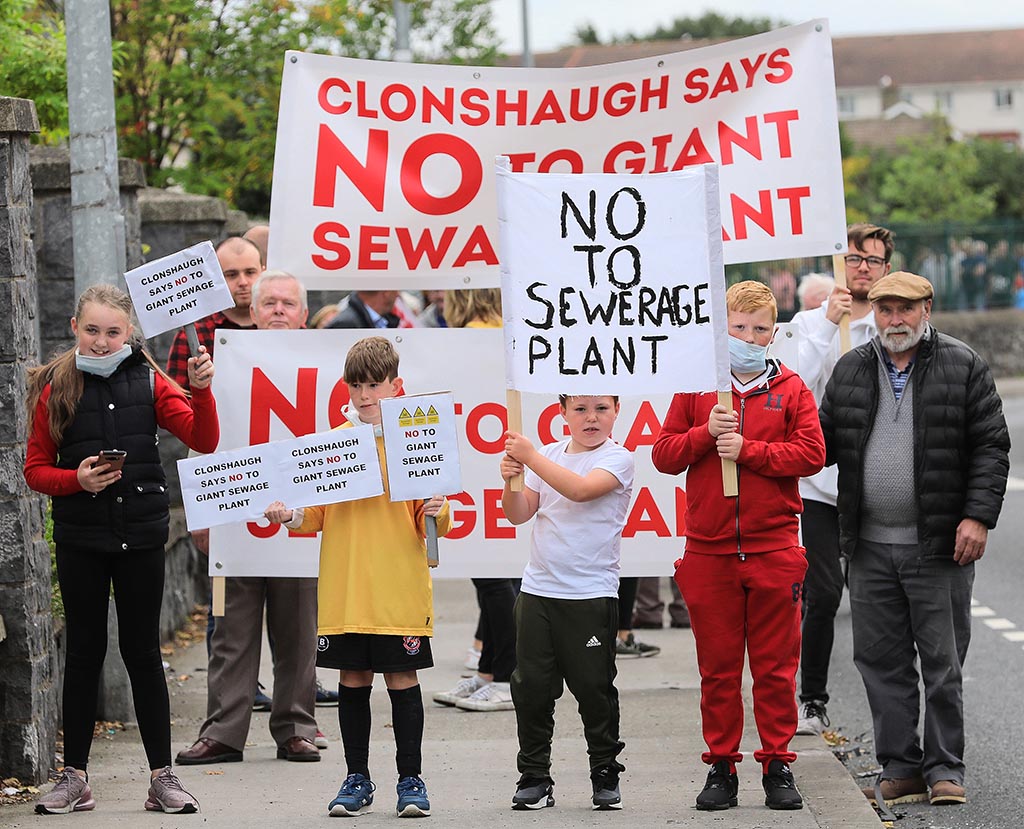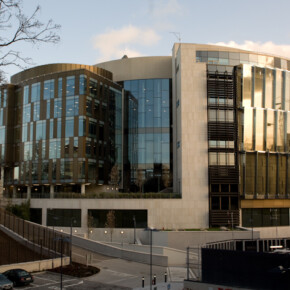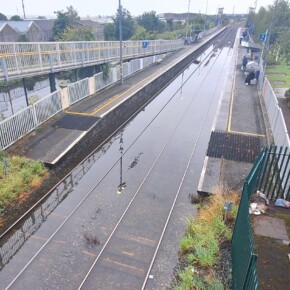Residents vow to step up sewage plant protests
Dublin People 22 Sep 2018
NORTHSIDE residents opposed to a huge sewage plant proposed for their area have vowed to intensify their campaign over the coming months.
Clonshaugh locals, vehemently against the controversial plan, took part in a second protest last Saturday week.
Therese Doyle, who organised the protest, along with Nicole Brady and Terri Gray, told Northside People: “This was our second protest and it was another great success.
“We marched from Belcamp/Priorswood Park to the R139 behind the park where the proposed plant will be built.
“We want to continue to highlight that Irish Water’s plans to build a sewage plant four times the size of Croke Park Stadium in the middle of a highly populated residential area is unacceptable.”
Ms Doyle said the proposed plant will “affect all of the Northside of Dublin”.
“So many people are still unaware of the plans and how it will affect them,” she said.
“For example, there will be large biosolid holding tanks built in Finglas and Blanchardstown. The waste will be (taken) from Meath, Kildare and parts of North Dublin.
“The waste will sit in these tanks until the plant is able to take it in for treatment.”
According to Ms Doyle, there will also be major disruption during construction while drilling is taking place to facilitate the route of the orbital sewer pipe.
“This again will affect everyone,” she said.
“Although Irish Water say there will be no odour, they have confirmed they will open vents numerous times per day to release build up of gases, so there will obviously be a horrendous smell.
“We will continue to protest and advise people about the proposed plant.
“We hope other communities come on board.”
Earlier this month Northside People reported how An Bord Pleanála has ordered Irish Water to investigate omissions in its planning application for the huge sewage plant at Clonshaugh.
It notified Irish Water that it intends to hold an additional period of statutory consultation for the Greater Dublin Drainage Project at Clonshaugh from September 13 to October 18.
At the time, Irish Water said the omission of the supporting documentation does not impact the findings and conclusions of the Environmental Impact Assessment Report (EIAR).
“The data from these reports had already been incorporated in the main Environmental Impact Assessment Report,” it said.
Irish Water also said it welcomes this direction from An Bord Pleanála and will place the Greater Dublin Drainage planning application and EIAR (including the previously omitted appendices) on public display at the following locations:
• The Offices of An Bord Pleanála, 64 Marlborough Street, Dublin 1,
• The Offices of Fingal County Council, County Offices, Grove Road, Blanchardstown,
• The Offices of Fingal County Council, Fingal County Hall, Main Street, Swords, and
• The Offices of Dublin City Council, Civic Offices, Wood Quay, Dublin 8.
In a statement, Irish Water said the Greater Dublin Drainage project will help to ensure that the wastewater generated every day in homes, schools and workplaces will continue to be treated safely in compliance with the EU and national wastewater treatment regulations.
People who wish to make a submission to An Bord Pleanála during the new consultation period of five weeks will have to pay a fee of €50.
However, all those who made earlier submissions will not have to pay a further observer’s fee of €50.
Therese Doyle pointed out that neighbours, family and friends can get together and sign the one objection and split the fee.
Meanwhile, Dublin Bay North TD Sean Haughey (FF) is among the public representatives opposed to the sewage plant being built at Clonshaugh.
“We have to accept that waste water management must feature in an urban landscape but it can and should operate in harmony with residents and fit into the surrounding environment,” said Deputy Haughey.
“The provision of smaller treatment plants is more sustainable and in keeping with environmental principles generally.
“These plans are not the solution to effective water treatment and an oral hearing must be provided so that residents’ concerns can be dealt with in public.”
- Residents vow to step up sewage plant protests












